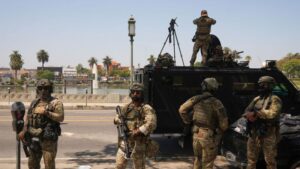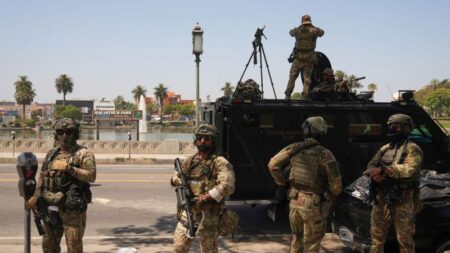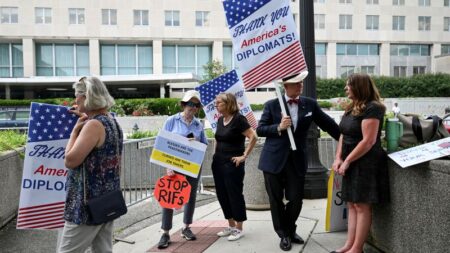In a significant development for North Korea’s tourism landscape, the Wonsan Kalma resort has recently opened its doors to its first group of Russian tourists. This beachside destination has attracted attention not only for its picturesque beaches but also due to the controversial circumstances surrounding its construction, which has raised concerns from human rights observers globally. The grand ceremony marking the resort’s opening was presided over by North Korea’s leader, Kim Jong Un, who touted the development as a “world-class tourist and cultural destination.”
The origins of the Wonsan Kalma resort are steeped in secrecy, with detailed accounts of its construction remaining obscured in a nation that is notoriously closed off from external scrutiny. BBC Verify, an investigative arm of the BBC, utilized satellite imagery, internal documents, and expert testimonials to explore alleged worker abuses during the resort’s development phase. Such scrutiny has highlighted the harsh realities faced by laborers, particularly in sectors under the government’s tight grip.
Historically, Wonsan has held a cherished place as a vacation spot for North Korea’s elite, and Kim Jong Un spent much of his youth in this coastal town. The North Korean regime aims to revitalize tourism in the hopes of attracting up to one million visitors annually while maintaining control by restricting access to specific areas. Respected North Korean economic officials have indicated that this initiative is not only about boosting tourism but also about slightly opening North Korea to the outside world.
Interestingly, Kim Jong Un’s interest in developing this resort has drawn parallels with the popular tourist destination of Benidorm in Spain, where North Korean officials conducted a reconnaissance mission prior to embarking on this project. With the bustling tourist scenes in Benidorm serving as inspiration, the North Korean delegation, involving high-ranking officials and architects, gathered insights on hospitality, entertainment, and infrastructure that could potentially be adapted to their own project.
The extensive development plan includes accommodations comprising 43 identified hotels along the beachfront, alongside guest houses, an artificial lake, and designated camping areas. While satellite imagery corroborates aspects of this ambitious plan, verification of the completion and readiness for tourists remains uncertain. The resort design suggests a significant investment in leisure and entertainment facilities, with amenities like an aquatic park and various recreational centers being part of the larger blueprint.
However, the zeal to complete the resort quickly has led to serious allegations about worker treatment on-site. Reports from the United Nations outline a troubling reality where forced labor and “shock brigades” operate within North Korea, subjecting workers to grueling hours and inadequate working conditions. Testimonials from defectors paint a disturbing image of the conditions under which these construction projects continue to unfold, including instances of workers laboring around the clock without proper sustenance or safety assurances.
Added complexities arise as familial sacrifices are often made in hopes of obtaining favor from the government, allowing for a possible pathway to better living conditions. Eyewitness accounts suggest that individuals have experienced extraordinary hardships, with insufficient food and harsh treatment, as they attempt to complete tasks deemed critical by their superiors. In some cases, entire communities have been displaced to make way for the resort’s expansion, with little regard for the pre-existing dwellings.
Official responses to queries about these human rights violations have been notably absent, which signifies the regime’s continued effort to project a favorable image internationally while tightening internal controls. Despite this, the regime seeks to capitalize on its relationship with Russia, especially after a summit meeting where Russian President Vladimir Putin expressed his intention to promote tourism to North Korea, encompassing new developments like the Wonsan Kalma resort.
As it stands, the hope is for this resort to flourish as a symbol of economic revitalization and a resurgence in North Korea’s tourism sector. However, the realities faced by workers and the restrictive nature of the regime make this hope a challenging prospect. While some Russian tourist agencies have started promoting trips to North Korea, experts predict that significant influxes of tourists may remain elusive as travelers weigh options against competing international destinations that offer superior experiences without the constraints imposed in North Korea.











